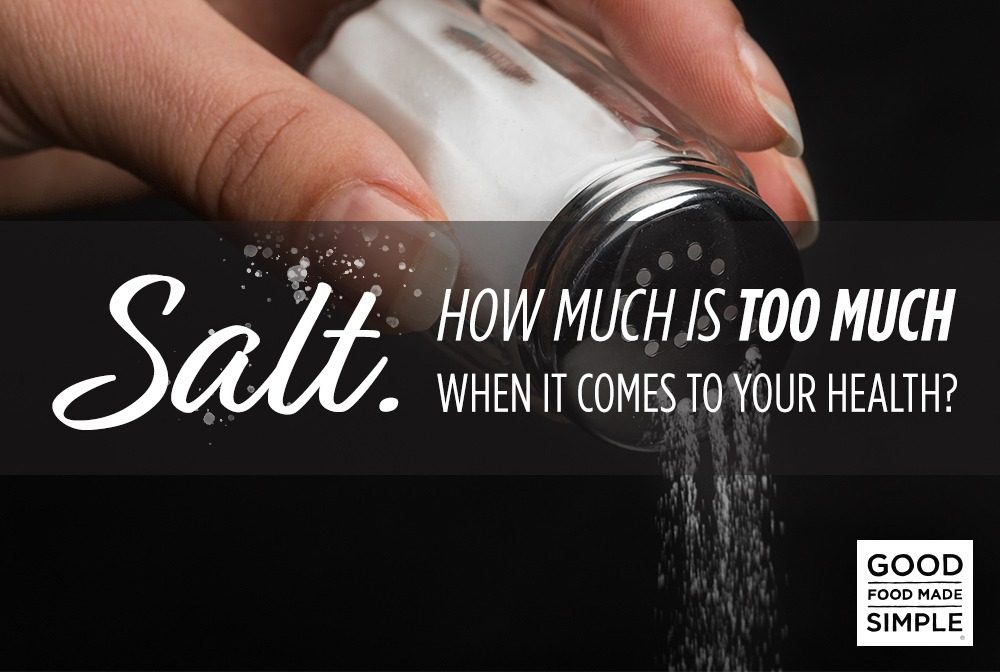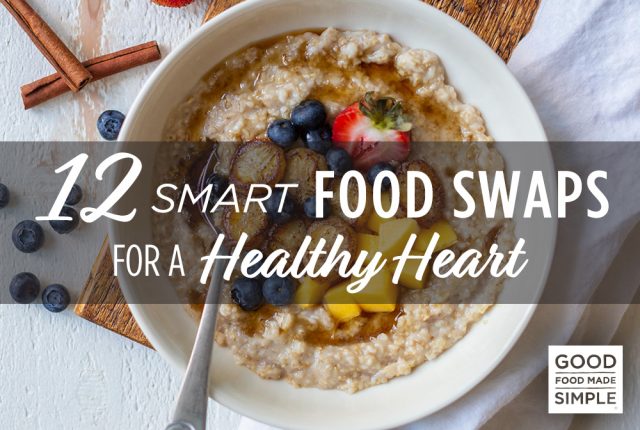
25 Active Date Ideas
While going on dates can certainly be fun, a typical night out with a romantic partner often ends up being focused on eating ...
read more
If you’re anything like us, you like to add salt to everything (well, mostly everything). We’ve been known for keeping a small salt shakers in our purses, and tend to go through Costco-sized salt containers faster than we’d like to admit.
While salt is part of any healthy diet, as with most things, it’s best in moderation. So how much salt is too much? And how much should we consume on the daily? Lastly, what does a certain amount of salt even look like? We’ll dive into all that salty goodness now.
Salt — often referred to by its chemical element, sodium — is found in almost everything we consume. It either occurs naturally in many foods, is added as a preservative, or is used as a way to flavor a dish, from tomato soup and Italian dressings to sea salt caramel.
It’s important to note that our bodies need salt. The sodium that’s found in our bodies actually lives in our bloodstream with fluid surrounding the cells. Salt’s job is to keep these fluids in balance, and contrary to popular belief is actually needed to keep you properly hydrated. Sodium also ensures our muscles and nerves function properly. Lastly, anyone who exercises needs healthy bouts of sodium as well, since you lose salt through sweating.
Sodium is notoriously linked to high blood pressure, which can damage your blood vessels and arteries and in turn increase your risk of heart disease, stroke, and kidney disease. However, the studies that explain how much salt has been controversial, along with the recommendations for how much sodium a person should consume.
For example, the US Department of Health and Human Services recommend individuals limit their salt intake to less than 2,300 mg (2.3 grams) of salt per day, while the Institute of Medicine (IOM) recommends healthy adults consume 1,500 mg (1.5 grams). For context, one teaspoon of salt amounts to six grams.
To make things more complicated, the World Health Organization (WHO) suggests consuming 2,000 mg (2 grams) of sodium per day, and the American Heart Association, perhaps unsurprisingly, advises the same amount as IOM: 1,500 mg (1.5 grams).
Despite the various recommendations, Americans consume more sodium than what we’re told. We average at about 3,400 mg (3.4 grams) of salt every day. While this may seem like a lot, science is struggling to find clear lines of connection between this consumption rate and poor health. To make matters even stickier, many people with normal blood pressure levels may not benefit from restricting their sodium intake, and some evidence even suggests that decreasing salt intake could actually harm our health.
As you might expect, there is no clear-cut answer for how much sodium a person should eat or drink. This is especially relevant for athletes, who lose a lot of sodium through sweating and need to replenish sodium levels through electrolyte drinks, salt tablets, and naturally salty foods.
The best thing you can do is talk to your doctor, who knows the ins and outs of your health and can tell you if you’re at risk for high blood pressure or heart disease. Until you do that, the common sense approach will also suffice: Just like everything we eat, enjoy salt in moderation. For example, if you notice you’ve had salted peanut butter for breakfast and some pretzels as a snack, skip the salt in your stir fry and add garlic powder and pepper instead.
Lastly, it’s important to understand the differences between the various types of salt you might see at the supermarket. There are three common types of salt: table salt, sea salt, and Himalayan pink rock salt.
Whenever possible, avoid table salt since this contains the most sodium chloride and is heavily processed. On the flip side, natural salts like sea salt and rock salt come in their whole form and are generally healthier options and are actually less salty.
So yes, you can ask to pass the salt at the dinner table. If you don’t go overboard with the salt shaker, sodium can help you stay hydrated, promote good vascular health, support a healthy nervous system, and even improve your sleep. And there’s nothing wrong with that!

25 Active Date Ideas
While going on dates can certainly be fun, a typical night out with a romantic partner often ends up being focused on eating ...
read more
12 Smart Food Swaps For A Healthy Heart
February is American Heart Month, and one of the best ways to maintain good heart health is to watch what you eat. Instead of...
read more
Starting the New Year With the ‘Right’ Mindset
With the holiday finally over and the new year upon us, I’d be shocked if you haven’t thought about New Year's Resoluti...
read more